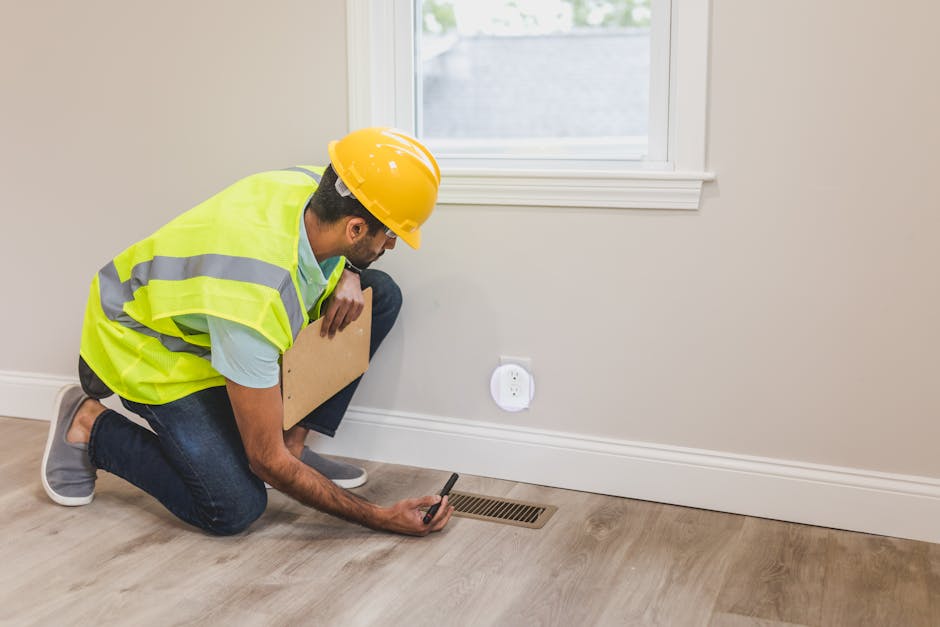What should property manager be doing on a regular basis? This is a common question that many property owners ponder as they strive to maintain the smooth operation of their investments. To put it simply, property managers juggle an array of tasks daily to keep properties running efficiently. Their core responsibilities include:
- Communicating with tenants and vendors
- Handling maintenance requests promptly
- Managing finances through rent collection and budgeting
- Conducting regular inspections to ensure everything is up to standard
In the busy world of property management, these skilled professionals wear many hats, overseeing everything from tenant relations to financial management. Their role is pivotal in preserving property value while ensuring tenant satisfaction. This means staying organized, resolving issues quickly, and adapting to new challenges—often all in a single day.
Whether it’s scheduling maintenance or addressing a tenant’s concern, property managers are the linchpins that hold the day-to-day operations together. At GageCo Home Services, we understand the intricacies of efficient property management. Our expertise helps property owners steer these tasks with ease, allowing their investments to thrive.

Glossary for what should property manager be doing on a regular basis:
– are property management companies regulated
– florida property management regulations
– property management rules and regulations
What Should Property Manager Be Doing on a Regular Basis
Maintenance and Repairs
One of the key duties in property management is maintenance and repairs. Property managers must be vigilant in responding to maintenance requests from tenants. Quick response times not only keep tenants happy but also prevent small issues from becoming costly repairs.
Coordinating with technicians and contractors is another vital task. It’s essential to have a reliable network of professionals ready to tackle everything from plumbing issues to HVAC repairs. Approving invoices for these services is also part of the job. Managers need to ensure that the expenses align with the budget and that services are delivered satisfactorily.

Tenant Relations
Tenant relations form the backbone of a successful property management strategy. Screening applicants thoroughly helps in selecting tenants who are likely to respect the property and pay rent on time. This step is crucial in minimizing future disputes and ensuring a harmonious living environment.
Handling complaints and resolving issues swiftly is another regular task. Property managers should be approachable and proactive in addressing tenant concerns to maintain a positive relationship. Additionally, managing lease renewals is part of the routine, which involves negotiating terms and ensuring paperwork is completed correctly.
Financial Management
Financial management is a critical aspect of a property manager’s role. Rent collection should be systematic and timely to maintain cash flow and financial stability. This involves sending reminders and following up on late payments, ensuring that rent is collected efficiently.
Budgeting is another task that requires attention to detail. Property managers need to plan for regular expenses and unforeseen repairs while keeping an eye on the bottom line. Financial reporting is also essential, as it provides a clear picture of the property’s financial health and informs future decisions.
Property Inspections
Regular property inspections are necessary to identify issues early and ensure compliance with safety and building codes. Inspections help in maintaining the property’s condition and can prevent minor problems from escalating.
During inspections, property managers should look for signs of wear and tear, safety hazards, and any non-compliance with lease agreements. Addressing these issues promptly not only preserves the property’s value but also keeps tenants safe and satisfied.
In summary, property managers are the backbone of property operations, balancing maintenance, tenant relations, financial oversight, and regular inspections. Their role is crucial in ensuring that properties run smoothly and efficiently.
Key Skills for Property Managers
In property management, having the right skills can make all the difference. Four key skills stand out: organization, time management, multitasking, and communication. Each plays a crucial role in ensuring the smooth operation of properties and satisfaction of tenants and owners alike.
Organization
Being organized is a non-negotiable skill for property managers. With countless documents, contracts, and communications to handle, effective file management is essential. Minimizing paperwork by utilizing technology can streamline operations and reduce clutter. Many property managers use software to keep track of tenant information, maintenance schedules, and financial records. According to a survey by Buildium, 81% of property owners believe property managers should leverage technology to improve their organizational capabilities.
Time Management
In property management, time is often of the essence. Scheduling and prioritizing tasks are key to staying on top of daily responsibilities. Property managers must be adept at meeting deadlines, whether it’s for rent collection, maintenance requests, or financial reporting. Creating a routine and sticking to it can help manage time effectively. Breaking the day into chunks dedicated to specific tasks prevents the feeling of being overwhelmed and boosts productivity.
Multitasking
Handling multiple properties and managing various tasks simultaneously is a regular part of a property manager’s job. This requires excellent multitasking abilities. From coordinating repairs at one property to handling tenant disputes at another, property managers need to juggle numerous responsibilities without dropping the ball. A successful property manager can seamlessly switch between tasks, ensuring each is completed efficiently and effectively.
Communication
Effective communication is the cornerstone of property management. Property managers must maintain clear and open lines of communication with tenants, owners, and contractors. This involves everything from tenant interactions to owner relations and contractor coordination. Strong communication skills help in resolving disputes, negotiating lease terms, and ensuring everyone is on the same page. As noted in the research, open and consistent communication builds trust and fosters a positive community environment.
Property managers who excel in these areas can steer the complexities of their role with greater ease, ensuring properties are well-maintained and tenants are satisfied. These skills are not just beneficial—they’re essential for success in property management.
Challenges in Property Management
Being a property manager is no easy feat. The role comes with its fair share of challenges, from stress management to tenant disputes and maintenance issues. Here’s a closer look at these problems and how to tackle them.
Stress Management
Property management is inherently stressful, with a constant stream of responsibilities and unexpected issues. Maintaining work-life balance is crucial to avoid burnout. It’s important for property managers to set boundaries, ensuring there’s time for personal life outside work hours. Taking breaks and engaging in activities you enjoy can help recharge and prevent burnout.
Dealing with difficult situations is part of the job. However, if you’re following the necessary procedures, you’re doing your part. Learn to manage stress by focusing on what you can control and letting go of what you cannot. This mindset can make a significant difference in handling the daily pressures of the job.
Tenant Disputes
Conflicts with tenants are inevitable, but effective mediation and conflict resolution can turn a potential crisis into a manageable situation. Property managers should remain calm and professional, listening to tenant concerns and working towards a fair resolution. Open communication is key to resolving disputes amicably.
Establishing clear boundaries and expectations with tenants from the outset can prevent many issues. Being too strict can create tension, while being too casual might lead to misunderstandings. Striking the right balance is essential for maintaining professionalism and fostering positive tenant relationships.
Maintenance Issues
Property maintenance is a critical aspect of property management. Preventive maintenance is the best way to avoid costly repairs and keep properties in top condition. Regular checks and upkeep can prolong the life of property assets and ensure tenant satisfaction.
However, emergencies happen. Having a reliable process for emergency repairs is vital. Tenants need a way to report urgent issues, and property managers should have a trusted team of vendors ready to respond quickly. Vendor management plays a crucial role here—building a network of dependable contractors ensures that repairs are handled efficiently and effectively.
By staying proactive with maintenance and fostering strong vendor relationships, property managers can minimize disruptions and maintain the quality of their properties.
Navigating these challenges requires a blend of skill, patience, and strategic thinking. By focusing on stress management, resolving tenant disputes professionally, and maintaining properties proactively, property managers can thrive in their roles and ensure the success of their operations.
Frequently Asked Questions about Property Management
What is the property manager’s basic responsibility?
A property manager’s basic responsibility revolves around financial management. This includes rent collection, budgeting, and financial reporting. Ensuring a steady cash flow is crucial for property owners, which means property managers must be diligent in collecting rent on time and following up on any late payments.
Budgeting is another key task. Property managers need to plan for both expected and unexpected expenses, ensuring funds are allocated appropriately to maintain the property and meet tenant needs. Regular financial reporting keeps property owners informed about the performance of their investment.
What is the most important job of a property manager?
While financial responsibilities are crucial, tenant management and property maintenance often top the list of a property manager’s most important jobs. Keeping tenants satisfied ensures higher retention rates and fewer vacancies. This involves handling tenant complaints, managing lease renewals, and ensuring a positive living environment.
Property maintenance is equally important. Regular inspections and timely repairs prevent small issues from becoming costly problems. A well-maintained property attracts quality tenants and maintains its value over time. Property managers need to be proactive and responsive to ensure the property remains in good condition.
How many properties can a property manager handle at once?
The number of properties a manager can handle effectively depends on several factors, including the complexity of the property portfolio and the manager’s workload management skills. On average, a property manager might oversee between 130 to 150 properties. However, this can vary based on the type and size of the properties, as well as the support staff available.
Efficiency is key. Using technology to streamline tasks, such as automated rent reminders and maintenance scheduling, can help manage more properties without sacrificing quality. The goal is to ensure each property receives the attention it needs, keeping both owners and tenants satisfied.
Conclusion
In property management, the responsibilities are vast and varied. From financial oversight to tenant relations, property managers have their hands full. Yet, the rewards of keeping properties in top shape and tenants happy are immense. It’s a role that requires a balance of skills, dedication, and a proactive approach.
At GageCo Home Services, we pride ourselves on offering a personalized approach to property management. With over 30 years of experience, we treat each property as if it were our own. Our commitment to quality ensures that our clients receive the best service possible, keeping their properties in excellent condition and their tenants satisfied.
Whether it’s handling routine maintenance, managing financials, or ensuring tenant satisfaction, we are dedicated to making property management as seamless as possible. Our expertise in the real estate service industry allows us to provide comprehensive solutions custom to each client’s unique needs.
Find the benefits of our professional property management services in Florida by visiting our service page. Let us help you manage your properties with the care and attention they deserve.


